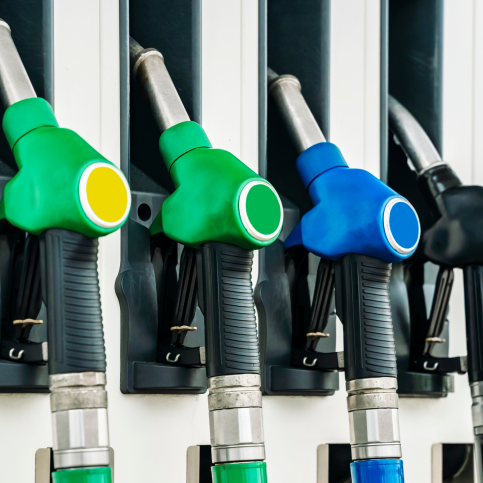Table of Contents
- Introduction to Methylester Distillation
- What is Methylester Distillation?
- Key Steps in the Distillation Process
- Separation of Components
- Purification and Quality Control
- Enhancing Fuel Performance
- Importance of Methylester Distillation in the Biodiesel Industry
- Environmental Impact
- Regulatory Compliance
- Economic Benefits
- Innovations and Future Trends in Methylester Distillation
- Technoilogy’s Advanced Solutions for Biodiesel Distillation
- Conclusion
Introduction to Methylester Distillation
Methylester distillation plays a crucial role in biodiesel production, ensuring that the fuel meets high-quality standards for performance, efficiency, and sustainability. As the demand for cleaner and renewable energy sources continues to grow, the refinement of methyl esters through distillation remains an essential step in producing low-emission biodiesel.
By removing impurities, glycerol, and excess methanol, methylester distillation enhances fuel purity, resulting in better engine performance, reduced emissions, and improved regulatory compliance. This process is fundamental to ensuring that biodiesel remains a viable and sustainable alternative to conventional diesel.
What is Methylester Distillation?
Methylester distillation is a refining process used in biodiesel production to purify crude methyl esters, which are derived from the esterification of vegetable oils or animal fats. The primary objective of this process is to eliminate residual contaminants, such as glycerol, methanol, and unreacted fatty acids, ensuring that the final biodiesel product meets stringent industry standards.
Without proper distillation, crude biodiesel may contain impurities that can lead to engine deposits, inefficient combustion, and increased emissions. Through fractional distillation, the desired methyl esters are separated from undesirable byproducts, producing a cleaner, more efficient fuel suitable for use in combustion engines.
Key Steps in the Methylester Distillation Process
Separation of Components
The first stage in methylester distillation involves heating the crude methyl esters to separate different components based on their boiling points. This method, known as fractional distillation, allows for the effective removal of glycerol, methanol, and residual reactants, ensuring that the refined methyl esters are of high purity.
During this step, careful temperature control is necessary to prevent degradation of biodiesel molecules, maintaining the stability and efficiency of the final fuel product.
Purification and Quality Control
After separation, the purified methyl esters undergo further filtration and treatment to remove any remaining impurities or oxidation byproducts. This step enhances the thermal and oxidative stability of biodiesel, making it more suitable for long-term storage and reliable engine performance.
Additionally, this stage helps ensure compliance with international biodiesel quality standards, such as EN 14214 in Europe and ASTM D6751 in the United States.
Enhancing Fuel Performance
The final product obtained through methylester distillation has superior combustion properties, leading to:
- Cleaner engine operation, with fewer carbon deposits and improved fuel efficiency.
- Reduced emissions, particularly lower levels of particulate matter, carbon monoxide, and nitrogen oxides.
- Extended engine life, as refined biodiesel prevents premature wear and damage to fuel injectors and combustion chambers.
By optimizing fuel composition through distillation, biodiesel can effectively compete with traditional petroleum-based fuels, offering environmental and economic advantages.
Importance of Methylester Distillation in the Biodiesel Industry
Environmental Impact
One of the key advantages of methylester distillation is its contribution to sustainable energy solutions. By improving the purity of biodiesel, this process helps:
- Reduce greenhouse gas emissions by lowering carbon dioxide and particulate matter released into the atmosphere.
- Improve air quality by decreasing the formation of harmful pollutants linked to fossil fuel combustion.
- Support the transition toward renewable fuels, reducing dependence on petroleum-based diesel.
As global efforts to combat climate change continue, methylester distillation remains an integral process in ensuring that biodiesel is a clean and efficient energy source.
Regulatory Compliance
Biodiesel must adhere to strict international quality standards to be accepted in commercial markets and transportation sectors. Methylester distillation ensures that biodiesel meets essential quality criteria, including:
- Lower glycerol content, preventing fuel system clogging.
- Reduced methanol residues, ensuring safe and efficient fuel combustion.
- Stable oxidation levels, preventing fuel degradation during storage.
Regulatory bodies in Europe, North America, and Asia require biodiesel producers to refine their fuels to meet environmental and performance benchmarks, making methylester distillation a non-negotiable step in production.
Economic Benefits
Beyond environmental and regulatory advantages, methylester distillation provides economic benefits by:
- Improving fuel efficiency, reducing overall fuel consumption.
- Extending engine life, decreasing maintenance and operational costs.
- Enhancing biodiesel market value, ensuring producers meet premium fuel standards.
By increasing biodiesel quality, distillation strengthens its competitiveness as a cost-effective alternative to traditional diesel fuels.
Innovations and Future Trends in Methylester Distillation
With ongoing advancements in biodiesel technology, new innovations in methylester distillation are focused on:
- Energy-efficient distillation techniques, reducing processing costs and emissions.
- Advanced filtration and purification methods, improving fuel purity without excessive energy consumption.
- Integration of automated systems, optimizing precision and minimizing waste.
As the renewable energy industry continues to evolve, these innovations will further enhance biodiesel quality, ensuring greater adoption in global markets.
Technoilogy’s Advanced Solutions for Biodiesel Distillation
Technoilogy specializes in state-of-the-art methylester distillation systems, designed to:
- Maximize fuel purity through advanced separation and purification technologies.
- Improve energy efficiency, reducing processing costs for biodiesel manufacturers.
- Ensure compliance with global fuel standards, enabling seamless market integration.
With a focus on sustainability, efficiency, and innovation, Technoilogy’s biodiesel refining solutions help businesses produce high-performance, low-emission biofuels.
For more details on biodiesel refining solutions, visit:
Technoilogy Biodiesel Processing
Conclusion
Methylester distillation is a critical refining process that enhances biodiesel quality, efficiency, and sustainability. By removing impurities, optimizing combustion properties, and ensuring regulatory compliance, this process plays a vital role in the advancement of renewable fuels.
As biodiesel production continues to expand, technological improvements in distillation will further refine the performance and cost-effectiveness of this eco-friendly alternative.
With industry leaders like Technoilogy developing cutting-edge biodiesel processing solutions, businesses can achieve superior fuel quality, greater market competitiveness, and a cleaner energy future.

